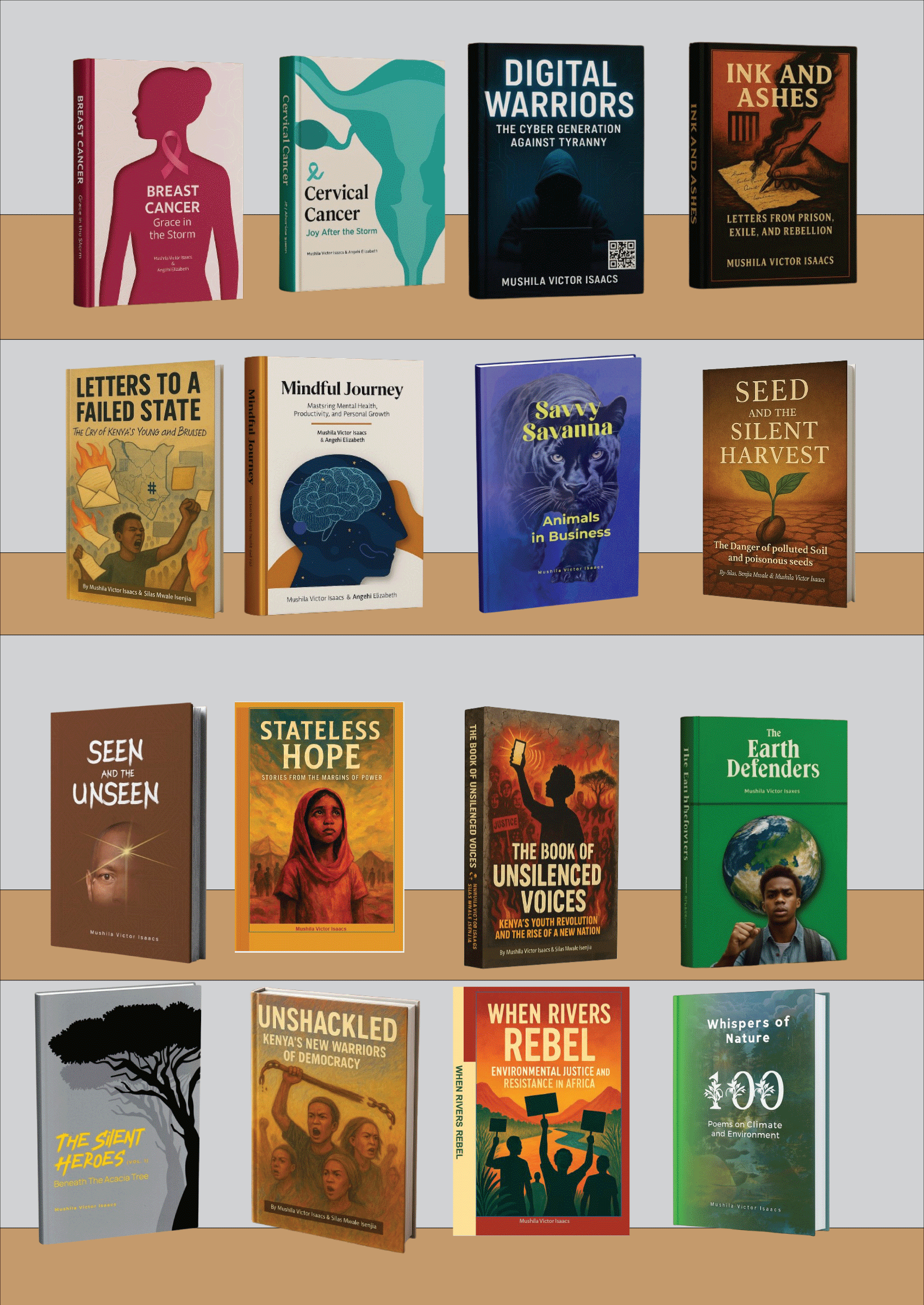Eco-Youth Initiative: Turning Waste into Opportunity
Masingo, Kakamega County, Kenya – Empowering youth, women, and communities through ecological sanitation and green entrepreneurship
Executive Narrative Overview
Kakamega County faces the dual challenge of youth unemployment and environmental degradation. In Masingo, young men increasingly turn to illicit brews like chang’a for temporary income, while women and marginalized groups bear the brunt of economic instability. This project transforms human waste into biogas, organic fertilizers, and compost, providing ethical, profitable, and sustainable livelihoods.
This narrative is not only about creating jobs—it’s about rebuilding community ethics, restoring ecological balance, and demonstrating innovative circular economy models in rural Kenya. Investors are offered a story-driven roadmap where environmental stewardship and financial viability intersect.
Problem Narrative
- Youth Unemployment: Many young men resort to illicit brewing, criminal activity, and unsafe work due to lack of formal employment.
- Environmental Degradation: Open defecation, improper sewage disposal, and wastewater contamination threaten soil and water quality.
- Poverty & Inequality: Vulnerable households, often led by women or elderly caregivers, struggle to meet basic needs.
- Limited Education & Skills: Illiteracy and lack of vocational skills prevent sustainable alternative livelihoods.
- Cultural Barriers: Traditional practices, such as bullfighting and dominant older leadership in religious centers, overshadow youth engagement and ethical entrepreneurship.
Storytelling Angle: Imagine the youth of Masingo shifting from the dim glow of chang’a joints to the bright promise of green innovation—earning a living, preserving the land, and securing their futures.
Project Objectives Narrative
- Empower Youth: Equip young men and women with practical skills in ecological sanitation, biogas, and compost production.
- Environmental Sustainability: Transform sewage into safe fertilizers and energy, reducing pollution and CO₂ emissions.
- Support Vulnerable Groups: Include women, girls, and persons with disabilities, ensuring equitable access to skills and income.
- Raise Community Awareness: Educate communities on health, hygiene, sustainable farming, and ethical enterprise.
- Reduce Dependency on Illicit Activities: Provide ethical, lucrative alternatives to chang’a brewing, robbery, and informal unsafe work.
Activities Narrative
- Sewage Collection & Treatment: “From village toilets to bio-digesters: converting risk into opportunity and energy.”
- Organic Fertilizer Production: “Turning human waste into gold for the soil—restoring fertility and food security.”
- Biogas Production: “Clean energy flows from waste, lighting homes and powering small businesses.”
- Skill Development & Training: “Youth and women gain knowledge, turning labor into sustainable livelihood.”
- Community Awareness Programs: “Workshops in schools and churches embed ethical practices, hygiene, and innovation.”
- Market Linkages: “Connecting production to local and regional markets ensures sustainable income streams.”
Expected Outcomes Narrative
- Economic Impact: 200+ direct jobs, 500+ indirect jobs; diversified income for families.
- Environmental Impact: Reduced contamination of soil and water; CO₂ reduction (~150 tons/year).
- Social Impact: Reduced reliance on chang’a and unsafe economic practices; enhanced ethical standards and community participation.
- Skills & Knowledge: Youth, women, and marginalized groups gain employable skills and entrepreneurship capabilities.
Investor Story: “Your investment doesn’t just generate returns; it rebuilds a community and restores hope.”
Budget Allocation
Total Budget: KES 6,710,000 (~USD 50,320 / EUR 47,860). Every KES, USD, or EUR invested directly translates into green jobs, clean energy, and fertile land.
ROI and Impact
Investors will see financial returns alongside tangible environmental and social impact. Funds accelerate production, training, and local adoption, creating a replicable model for Western Kenya and beyond.
Environmental Impact Metrics
Key Metrics: 200+ direct jobs, 500+ indirect jobs, Biogas Output: 3,000 m³/month, Organic Fertilizer: 50 tons/month, Water Pollution ↓ 70%, CO₂ Emissions ↓ 150 tons/year.
Sustainability Narrative
- Revenue from fertilizers and biogas sales ensures project continuity.
- Youth cooperatives maintain operations beyond initial funding.
- Community ownership through awareness programs ensures local responsibility and ethics.
- Scalability: Masingo serves as a pilot for expansion across Kakamega County and Western Kenya.
Investor Story: “Invest once, and watch a self-sustaining green economy flourish.”
